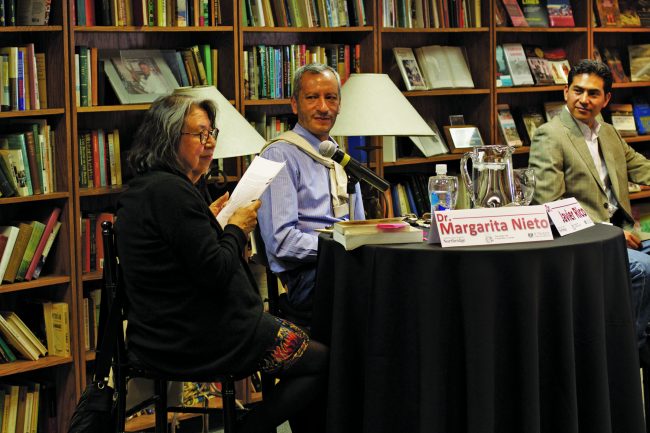
As part of the partnership between CSUN and the National Autonomous University of Mexico (UNAM), the Center for Mexico and Latin American Studies, held a discussion honoring the life of Mexican writer Octavio Paz.
Panelists included faculty from UNAM, who spoke through interpreters, and CSUN who shared their views on Paz, who would be 100 years old today.
Israel Ramirez, a professor of Literature and linguistics at UNAM, offered a history of Paz’s life. He said Paz is seen as an essayist due to his book, “The Labyrinth of Solitude,” but he wrote many poems as well. “The poetic aspect is being left behind,” Ramirez said. “We don’t think of him as a poet.”
Javier Rico, history professor at UNAM, also talked about Paz’s poetry. “We have come to acknowledge poetry before prose.” he said. Rico then talked about how literature and history collide. “We talk about historians and poets to talk about what happened,” he said. In “Labyrinth of Solitude” Paz talked about the Mexican identity, Rico shared his take. “What is happening to the Mexican as the individual is happening to the Nation,” he said.
Margarita Nieto, Chicana/o studies professor, shared some of Paz’s experiences growing up in Los Angeles, which resonated with the crowd. She said Paz moved to Los Angeles with his family when he was five years old and did not speak English. “He could not communicate with the students,” she said. Paz eventually learned the language and was able to speak with his fellow students. Nieto also mentioned a time when Paz was interviewed and asked about his love life. “He told the interviewer,’I’m in love, in love with language.” she said. Paz’s love of rhetoric was a big part of his life.
Pedro Serrano, professor of philosophy and letters at UNAM, said Paz had the ability to speak about anything. Serrano said in an interview, Paz was asked what kind of writer he was. “He answered, ‘I’m a poet, I can say anything I want. I’m not a slave to government,’” he said. Paz served Mexico as a diplomat.
The Center for Mexico and Latin American Studies is expected to open officially this fall and will housed in the department of social and behavioral sciences.









